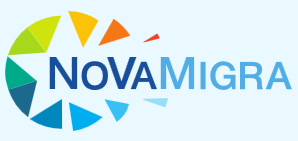Attaining Durability in the European Resettlement Regime : The Role of Norms and Values
Resettlement is a tool for the international protection of refugees which has received increased attention by the EU and member states in the wake of the 2015 refugee reception crisis. This re-port asks how to best ensure that resettlement functions as a durable solution for refugee protec-tion, as is intended by the UNHCR. Here we consider ideas, practices, and actors within the Euro-pean resettlement regime – from selection in first countries of asylum to the reception of resettle-ment beneficiaries and their integration in receiving municipalities. Our analysis is based on inter-views and participant observation with actors involved in all steps of resettlement to Germany and Sweden, and from local and international organizations in countries of first asylum (Lebanon and Turkey), as well as comparative insights from the USA. Based on the best practices observed in our research material we provide recommendations that we deem conducive to a more holistic and humanitarian approach to resettlement. This includes facilitating spaces for resettlement benefi-ciaries’ agency throughout the regime, for ‘eye-level’ encounters of mutual respect between the actors involved, and for thinking long-term and holistically about integration as an intrinsic part of resettlement. Ultimately, we argue that centring durability in the different processes of resettle-ment can serve as a way for the EU to commit to the humanitarian values at the core of interna-tional refugee protection.
Vorschau

NoVaMigra
Zitieren
Rechte
Nutzung und Vervielfältigung:
Dieses Werk kann unter einer Creative Commons Namensnennung - Nicht kommerziell - Keine Bearbeitungen 4.0 Lizenz (CC BY-NC-ND 4.0)
Creative Commons Namensnennung - Nicht kommerziell - Keine Bearbeitungen 4.0 Lizenz (CC BY-NC-ND 4.0)
genutzt werden.
